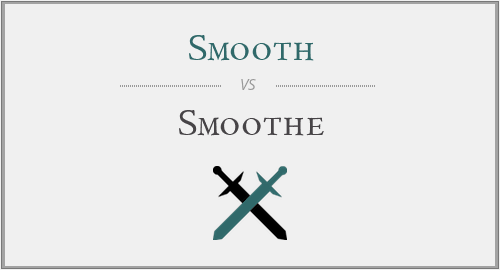In the English language, subtle variations often distinguish between seemingly similar words. One such pair is "smooth" and "smoothe." Let's delve into their nuances and usage.
1. Smooth
"Smooth" is a common adjective used to describe surfaces, textures, or actions that are free from roughness, bumps, or irregularities. Examples include:
- The smooth surface of the lake mirrored the sky.
- She ran her hand over the smooth silk fabric.
- He executed a smooth dance routine with effortless grace.
2. Smoothe
"Smoothe" is a less common variant of "smooth." While it shares the same meaning, its usage is relatively rare, and it is often considered archaic or dialectical. Examples of "smoothe" in modern usage are less prevalent but might include:

- The artist used a special technique to smoothe out the rough edges of the sculpture.
- She applied lotion to smoothe her dry skin.
It's worth noting that "smoothe" may be encountered in older texts or in specific dialects, but in contemporary English, "smooth" is overwhelmingly preferred.
Conclusion
While "smooth" and "smoothe" share the same fundamental meaning, their usage and prevalence in modern English differ. "Smooth" is the standard form, commonly used in everyday language to describe surfaces, textures, or actions, while "smoothe" is a less common variant that may be encountered in specific contexts or historical texts.




Have a discussion about this article with the community:
Report Comment
We're doing our best to make sure our content is useful, accurate and safe.
If by any chance you spot an inappropriate comment while navigating through our website please use this form to let us know, and we'll take care of it shortly.
Attachment
You need to be logged in to favorite.
Log In